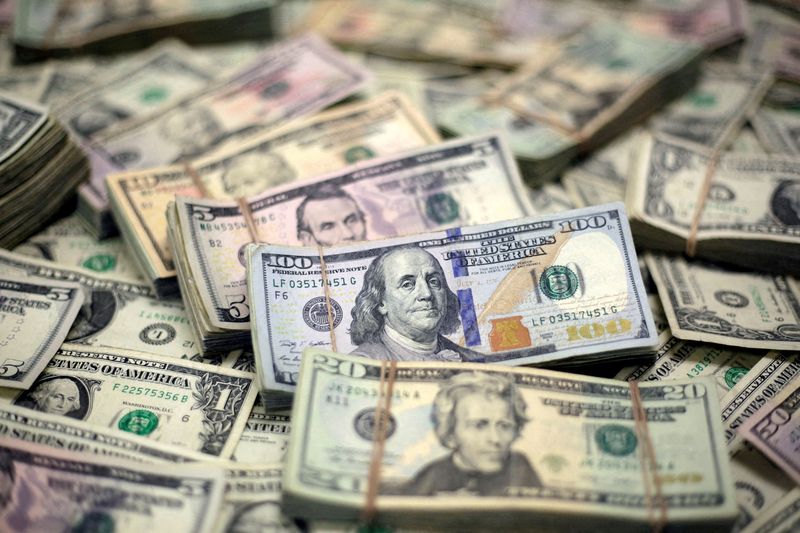Dollar drops as data boost fades; Swiss franc gains following rate cut
By Chuck Mikolajczak
NEW YORK (Reuters) -The dollar weakened in choppy trading on Thursday after a boost from healthy U.S. economic data faded, while the Swiss franc rose after the country's central bank cut interest rates by 25 basis points.
The greenback began paring losses after data showed U.S. weekly jobless claims fell by 4,000 to a four-month low of 218,000, below the 225,000 forecast by economists polled by Reuters.
Other reports showed corporate profits increased at a more robust pace than initially thought in the second quarter while gross domestic product grew at an unrevised 3%.
A gauge of new orders for key U.S.-manufactured capital goods unexpectedly rose in August, although business spending on equipment appears to have waned in the third quarter.
"Once again we have this split between the Fed cutting rates and an economy that is essentially growing at 3% or more, so the market doesn't quite know what to make of this," said Joseph Trevisani, senior analyst at FXStreet in New York.
"So why are we cutting rates? Well, what have we got to lose? It is not going to make the economy worse, it may make the economy better and the neutral rate is somewhere south of here so let's turn around and head in that direction."
The dollar index , which measures the greenback against a basket of currencies including the yen and the euro, fell 0.42% to 100.52, on track for its sixth drop in seven sessions, after rising as high as 100.95 earlier in the day. The euro was up 0.41% at $1.1178.
The Federal Reserve has recently signaled a shift in focus away from inflation and towards keeping the labor market healthy, but delivered a larger-than-usual 50 basis point interest rate cut last week.
The market is completely pricing in a cut of at least 25 basis points at the Fed's Nov. 6-7 meeting, with a 51.3% chance for another outsized half-percentage-point cut, according to CME Group's (NASDAQ:CME ) FedWatch Tool.
SWISS RATE CUT
Against the Swiss franc, the dollar weakened 0.55% to 0.846 after the Swiss National Bank reduced interest rates by 25 basis points, echoing the moves by the Fed and European Central Bank (ECB), and left the door open for more rate cuts as inflation cools sharply. The move disappointed some who saw a chance for a larger cut after the Fed's decision last week.
Analysts at Goldman Sachs said the SNB cut was motivated by lower inflationary pressure, driven by a stronger franc and other factors, and they expect a further 25-bp cut at the central bank's December meeting given its dovish guidance and new inflation projections.
A slew of U.S. central bank officials were speaking on Thursday, although several, including Fed Chair Jerome Powell, declined to comment on monetary policy.
U.S. Treasury Secretary Janet Yellen said labor market and inflation data suggest the U.S. economy is on a path to a "soft landing," but the "last mile" in the effort to tame inflation revolves around bringing down housing costs.
The Japanese yen strengthened 0.1% against the greenback to 144.6 per dollar. Bank of Japan policymakers were divided on how quickly the central bank should raise interest rates further, minutes of the bank's July meeting showed, highlighting uncertainty on the timing of the next increase in borrowing costs.
Sterling rose 0.71% to $1.3417, on track for its biggest daily percentage gain in a month.
Source: Investing.com
